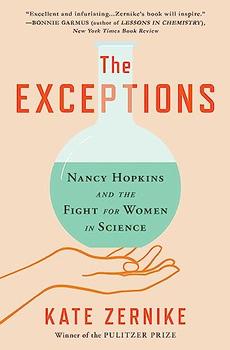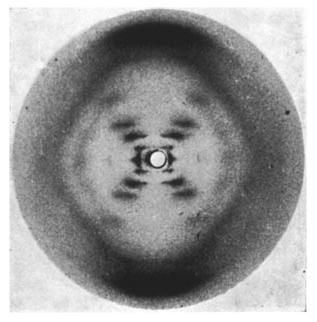Summary | Excerpt | Reading Guide | Reviews | Beyond the book | Read-Alikes | Genres & Themes | Author Bio

Nancy Hopkins, MIT, and the Fight for Women in Science
by Kate ZernikeFrom the Pulitzer Prize–winning journalist who broke the story, the inspiring account of the sixteen female scientists who forced MIT to publicly admit it had been discriminating against its female faculty for years—sparking a nationwide reckoning with the pervasive sexism in science.
In 1999, the Massachusetts Institute of Technology admitted to discriminating against women on its faculty, forcing institutions across the country to confront a problem they had long ignored: the need for more women at the top levels of science. Written by the journalist who broke the story for The Boston Globe, The Exceptions is the untold story of how sixteen highly accomplished women on the MIT faculty came together to do the work that triggered the historic admission.
The Exceptions centers on the life of Nancy Hopkins, a reluctant feminist who became the leader of the sixteen and a hero to two generations of women in science. Hired to prestigious universities at the dawn of affirmative action efforts in the 1970s, Dr. Hopkins and her peers embarked on their careers believing that discrimination against women was a thing of the past—that science was, at last, a pure meritocracy. For years they explained away the discrimination they experienced as the exception, not the rule. Only when these few women came together after decades of underpayment and the denial of credit, advancement, and equal resources to do their work did they recognize the relentless pattern: women were often marginalized and minimized, especially as they grew older. Meanwhile, men of similar or lesser ability had their career paths paved and widened.
The Exceptions is a powerful yet all-too-familiar story that will resonate with all professional women who experience what those at MIT called "21st-century discrimination"—a subtle and stubborn bias, often unconscious but still damaging. As in bestsellers from Hidden Figures to Lab Girl and Code Girls, we are offered a rare glimpse into the world of high-level scientific research and learn about the extraordinary female scientists whose work has been overlooked throughout history, and how these women courageously fought for fair treatment as they struggled to achieve the recognition they rightfully deserve.
As uplifting as the ending is, this book can be frustrating for younger female readers. The constant self-blame and assuming that double standards were "the way it is" is difficult to accept...But, it's important to remember this isn't a clarion call for how things should be. This is a story of how things were, and the fact that some of the smartest, most accomplished women in the world could struggle to see feminism as anything other than "radical," and would have such deep faith in scientific meritocracy despite the contrary evidence, should reinforce for younger generations just how deep-seated and pernicious patriarchal ideas have been, even in living memory...continued
Full Review
 (929 words)
(929 words)
(Reviewed by Rose Rankin).
 The discovery of DNA is one of the greatest scientific achievements in the modern era, and possibly one of the most significant in history. The credit has long gone to James Watson and Francis Crick, who publicized the famous double-helix structure of DNA and the rest, as PBS notes, "is Nobel Prize history."
The discovery of DNA is one of the greatest scientific achievements in the modern era, and possibly one of the most significant in history. The credit has long gone to James Watson and Francis Crick, who publicized the famous double-helix structure of DNA and the rest, as PBS notes, "is Nobel Prize history."
The problem is this is an oversimplification at best and a rip-off at worst. Rosalind Franklin, an English female scientist, and her co-researcher Maurice Wilkins played a crucial role in the discovery of DNA's structure, but she was written out of that history until the late 20th century.
Franklin was born to a Jewish family in London on July 25, 1920, and she studied physics and chemistry at Newnham Women's College at Cambridge...

If you liked The Exceptions, try these:

by Bonnie Garmus
Published 2025
A must-read debut! Meet Elizabeth Zott: a "formidable, unapologetic and inspiring" (Parade) scientist in 1960s California whose career takes a detour when she becomes the unlikely star of a beloved TV cooking show in this novel that is "irresistible, satisfying and full of fuel. It reminds you that change takes time and always requires heat" (The ...

by Cat Bohannon
Published 2025
The real origin of our species: a myth-busting, eye-opening landmark account of how humans evolved, offering a paradigm shift in our thinking about what the female body is, how it came to be, and how this evolution still shapes all our lives today
A book is one of the most patient of all man's inventions.
Click Here to find out who said this, as well as discovering other famous literary quotes!